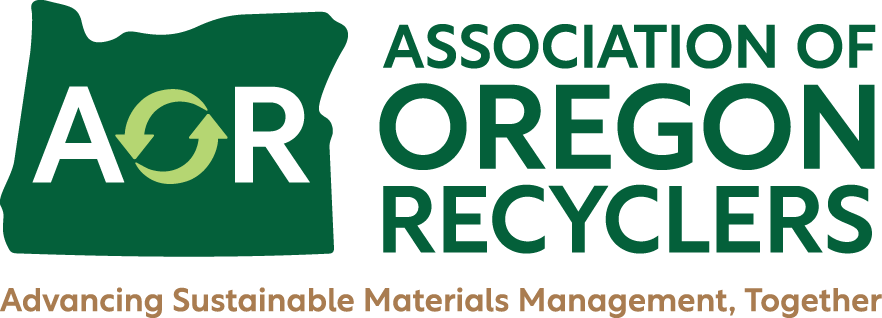Recycling Markets
L.A. planners juggle goals, markets and huge volumes of material
The second-largest city in the country also has a very ambitious waste diversion goal: 90% by 2025. That means Los Angeles must stay creative to continue managing the massive volume of recyclables its residents generate.
“We have a vast amount of bins all throughout the city,” said Robert Potter, city of Los Angeles division manager for the Bureau of Sanitation. “There are roughly 3 million containers that are out there on any given week.”
The city’s residential recycling program relies on city crews to service 750,000 single- and multi-family homes.
Recycling startups aim to keep it local
A group of Silver City residents are taking recycling into their own hands, developing plans to repurpose materials like plastics, paper and glass at a local level. The initiatives are bound together by local makerspace The Future Forge, where most of the initial efforts will take place.
Companies plan investments in US recycled paper mills
The past week brought several significant recycled paper capacity announcements, indicating future domestic outlets for mixed paper and OCC.
-
Shipping pulp from Kentucky to China: A Chinese company that purchased a U.S. paper mill will install a 700,000-tons-per-year recycled pulp and paper operation, taking in mixed paper and OCC and shipping the output to China for packaging production.
Scrap plastic exports plummet 43% this year, paper stable
The latest figures indicate that the plastics recycling disruption is ongoing, and there are many indications the export situation will only experience more uncertainty. For instance, this decrease comes before the impact of the Basel Convention changes in scrap plastic shipping rules. And additional countries are publicly denouncing scrap plastic imports and calling for regulatory reform.
NWRA Urges California Lawmakers to Consider Incentives for Domestic Recycling Infrastructure
In a letter to AB 1080 sponsor, California Assemblywoman Lorena Gonzalez, the National Waste and Recycling Association (NWRA) urged California lawmakers to incorporate in legislation incentives to boost domestic recycling markets and capacity. AB1080 and its companion bill SB54, legislation known as California Circular Economy and Plastic Pollution Reduction Act, would require a 75 percent reduction in waste from single-use plastic products by 2030 and requires all single-use plastic products in California to be recyclable or compostable by 2030.
Legislation directs EPA to strengthen U.S. recycling
A funding bill advancing in Congress directs the U.S. EPA to develop a national recycling strategy addressing harmonized labeling, public education and other factors.
The legislation also provides the EPA with funding for 2020 that’s well above what President Trump requested.
Local leaders respond to market challenges
Many recycling programs have been struggling to find economic stability, and in some cases, they’ve slimmed down to survive. Here are recent examples of adjustments in three communities of varying size.
Plastics recovery efforts receive millions in state funding
Five plastics recycling projects will take in a total of $11.7 million in California state grants. The awarded companies are targeting scrap plastic from a variety of sources.
The California Department of Resources Recycling and Recovery (CalRecycle) recently approved its 2018-19 Recycled Fiber, Plastic and Glass Grant Program recipients. All five awardees are targeting some amount of plastics with the funds.
Expanding capacity for residential mixed paper
Several paper mills are expected to open new facilities or expand capacity for residential mixed paper by the end of 2019 into 2021.
It’s Time for Plastic Producers to Take Responsibility
Our recycling system is in a crisis. Last year, China stopped taking our recycling for processing, setting off a chain reaction of problems for the American recycling system. In New England and across the country, the cost of recycling for towns and cities is skyrocketing, forcing local governments to shift around their budgets, or worse, consider canceling their programs altogether.


